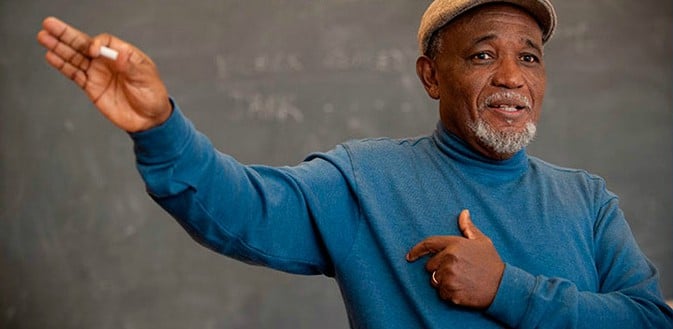Dr. Mohammed Ben-Abdallah, a towering figure in Ghanaian theatre and scholarship, passed away on September 18, 2025, at the age of 81, leaving behind a legacy that profoundly impacted the nation’s cultural landscape. The news of his demise, shared by his son Abdul Muiz Abass via a poignant Facebook post, reverberated throughout the artistic community and beyond, prompting an outpouring of grief and tributes. Dr. Abdallah’s life was characterized by deep wisdom, humility, and unwavering faith, qualities that guided his contributions to his family, his community, and his nation. His final rites, conducted in accordance with Islamic tradition, commenced with burial in Kumasi following Friday prayers, followed by a three-day Dua, a period of prayer and reflection. Further funeral arrangements were scheduled to take place in Accra, allowing a wider circle to mourn the loss of this distinguished scholar.
Born in Kumasi on April 25, 1944, Dr. Abdallah’s journey began in the field of education, where he served as a teacher before embarking on a path that would shape the future of Ghanaian theatre. His academic pursuits led him to the University of Ghana, Legon, where he immersed himself in the study of theatre arts. This passion propelled him further afield, culminating in the attainment of a Master of Fine Arts (MFA) degree from the University of Georgia in 1976 and a Doctor of Philosophy (PhD) from the University of Texas at Austin in 1980. These formative years laid the foundation for a career dedicated to elevating the artistic and cultural expression of his homeland.
Dr. Abdallah’s contributions to the development of Ghanaian theatre are indelible. He played a pivotal role in the establishment of the National Theatre of Ghana, a landmark institution that became a hub for artistic expression and cultural preservation. His vision extended beyond the creation of the physical space; he was instrumental in the formation of its resident companies, namely the National Drama Company, the National Dance Company, and the National Symphony Orchestra. These institutions, nurtured under his guidance, provided platforms for emerging and established artists to showcase their talents, fostering a vibrant and dynamic artistic ecosystem.
His influence also profoundly shaped the academic landscape of Ghanaian theatre. As Head of the School of Performing Arts at the University of Ghana, Dr. Abdallah mentored generations of theatre practitioners and academics, imparting his vast knowledge and inspiring a new wave of artistic talent. His dedication to education fostered a rigorous academic environment that nurtured critical thinking, creativity, and a deep appreciation for the performing arts. He instilled in his students a sense of purpose and a commitment to excellence, empowering them to become future leaders and innovators in the field.
Dr. Abdallah’s legacy extends beyond his professional achievements; it is deeply rooted in the lives he touched and the communities he served. He was a man of unwavering integrity and profound compassion, qualities that resonated with all who knew him. His dedication to fostering intercultural understanding through the arts transcended national boundaries, contributing to a richer and more interconnected global artistic community. His work reflected a deep commitment to social justice and cultural preservation, ensuring that the rich heritage of Ghanaian theatre would be celebrated and passed down to future generations.
The passing of Dr. Mohammed Ben-Abdallah marks the end of an era in Ghanaian theatre, but his legacy will continue to inspire and inform the artistic landscape for generations to come. His contributions to the development of the National Theatre, his leadership at the University of Ghana’s School of Performing Arts, and his unwavering dedication to nurturing artistic talent have left an enduring mark on the nation’s cultural heritage. He will be remembered not only for his remarkable achievements but also for his profound humanity, his unwavering faith, and his deep commitment to the enrichment of Ghanaian society through the transformative power of the arts.














